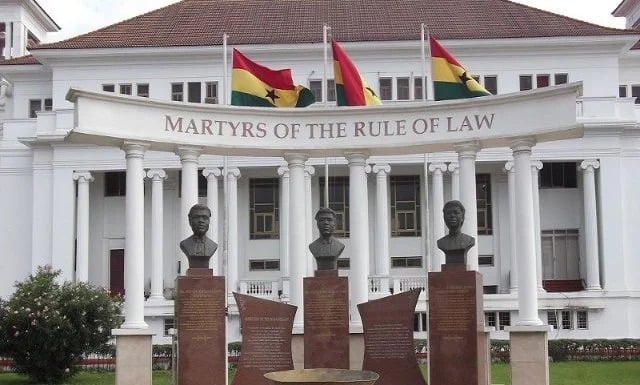The recent decision by the Supreme Court to grant a stay of execution on Speaker of Parliament Alban Bagbin’s ruling has significant ramifications for the political landscape in Ghana. This ruling had previously declared the seats of four Members of Parliament (MPs) vacant due to their switch in political allegiance, a decision that stirred considerable debate and controversy. The Supreme Court’s intervention, via a five-member panel chaired by the Chief Justice, indicates a cautious approach as they seek to resolve the issue without precipitating immediate political instability.
In essence, the stay means that the recent ruling by Speaker Bagbin cannot be acted upon until the Supreme Court thoroughly addresses the matter brought before it. This effectively pauses any actions that could be taken based on the declared vacancies of the MPs in question. The implications of this stay are particularly significant for the New Patriotic Party (NPP), as it ensures that the NPP Caucus continues to maintain its status as the Majority in Parliament, thereby preserving their legislative power for the time being.
The context surrounding the Speaker’s initial decision stems from the controversial nature of political defections in Ghanaian politics, which often lead to intense disputes over party loyalty and representation. The sudden declaration of vacant seats generated momentum for various political factions, intensifying tensions within Parliament. The Supreme Court’s ruling, therefore, not only halts immediate actions but also reflects a broader judicial interaction with the evolving political dynamics in the country, especially concerning issues of representation and party allegiance.
The application for the stay was filed ex parte by Majority Leader Alexander Kwamena Afenyo-Markin, signaling a strategic move to protect the interests of his party amidst the turmoil. By opting for an ex parte application, the NPP sought to expedite the legal process, emphasizing their urgency in addressing the matter. The Court’s decision to grant this stay illustrates the interplay between legislative actions and judicial oversight, highlighting the delicate balance of power within the Ghanaian governance framework.
Moving forward, the Supreme Court’s eventual ruling on the district will likely carry considerable weight—not only in terms of the affected MPs but also regarding the future of party allegiance in Ghana. It could set a precedent for how similar cases are handled in the future, particularly where issues of loyalty and parliamentary representation are concerned. The political parties involved will be closely monitoring proceedings, knowing that the outcome could directly influence their strategies and alignments as they approach upcoming elections.
In conclusion, the Supreme Court’s stay on Speaker Bagbin’s ruling reflects a significant juncture in Ghana’s parliamentary landscape. The decision highlights the complex interactions between law, politics, and party dynamics at a time when the stability of the government is paramount. As the judiciary prepares to deliberate on the issue comprehensively, all eyes will be on the implications of their verdict, which promises to shape the future of political representation and party loyalty in the country. This case serves as a reminder of the critical nature of checks and balances in governance and the ongoing struggle for political integrity within the nation.














